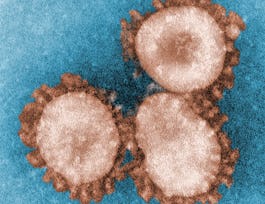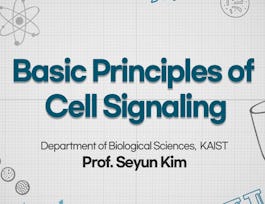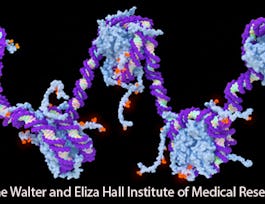What promise do stem cells hold for the treatment of medical conditions? In this five-part online course you will explore the history and basic biology of stem cells, learn about new research techniques, and find out how stem cells could lead to cures for diseases and to individualized medicine. You will hear from Museum scientists, medical researchers at the frontiers of the field, and a panel of bioethics experts who will address the ethical implications of stem cell research and therapy. Learn what has already been accomplished, what challenges remain, and what medical breakthroughs may lie ahead.


The Science of Stem Cells
Taught in English
Some content may not be translated
57,342 already enrolled
(2,818 reviews)
Details to know

Add to your LinkedIn profile
10 quizzes
See how employees at top companies are mastering in-demand skills


Earn a career certificate
Add this credential to your LinkedIn profile, resume, or CV
Share it on social media and in your performance review

There are 5 modules in this course
Welcome to The Science of Stem Cells! You will begin with a basic overview of stem cells--what they are, the history of stem cell research, and the potential for stem cell therapies. You will also learn from AMNH biologist Julia Zichello that stem cells are found throughout the tree of life.
What's included
6 videos3 readings2 quizzes
This week, New York University’s Dr. Esteban Mazzoni will discuss how scientists can coax stem cells to differentiate into particular cell types. Dr. Mazzoni will also talk about new stem cell-assisted technologies such as mitochondrial replacement therapy and generating chimeras for organ transplantation. You will also get some background information on the science and ethics of cloning.
What's included
3 videos1 reading2 quizzes
We have covered the process by which scientists can differentiate cells in a culture dish. Now you will look at how scientists can use these cell to model diseases in a culture dish. Dr. Andrew Sproul from Columbia University explains how cultured cells can be used to understand the cause of diseases and to look for drugs that will potentially cure them. His research is on Alzheimer’s disease. You will also explore how how stem cells have the potential to help with the study of diabetes.
What's included
3 videos1 reading2 quizzes
In addition to the great potential of stem cells to be used in the study of disease, stem cells can also be used to actually treat disease. Neural stem cell pioneer Dr. Sally Temple will explain the potential for using stem cells in our own bodies (adult stem cells) to treat age-related macular degeneration, an increasingly common and debilitating disease. Dr. Temple will also give you some tools for evaluating potential stem cell treatments.
What's included
3 videos1 reading2 quizzes
To complete the course, a panel of bioethics experts will discuss some of the controversies surrounding human embryonic stem cells and the legal, policy, and ethical challenges associated with the use of stem cells in basic and clinical research. You will have an opportunity to discuss and ask questions about the future of reproductive technology and stem cell research.
What's included
3 videos2 quizzes
Instructor

Offered by
Recommended if you're interested in Basic Science

University of Manchester

American Museum of Natural History

Korea Advanced Institute of Science and Technology(KAIST)

The University of Melbourne
Why people choose Coursera for their career




Learner reviews
Showing 3 of 2818
2,818 reviews
- 5 stars
77.68%
- 4 stars
19.82%
- 3 stars
1.98%
- 2 stars
0.35%
- 1 star
0.14%
New to Basic Science? Start here.

Open new doors with Coursera Plus
Unlimited access to 7,000+ world-class courses, hands-on projects, and job-ready certificate programs - all included in your subscription
Advance your career with an online degree
Earn a degree from world-class universities - 100% online
Join over 3,400 global companies that choose Coursera for Business
Upskill your employees to excel in the digital economy
Frequently asked questions
Access to lectures and assignments depends on your type of enrollment. If you take a course in audit mode, you will be able to see most course materials for free. To access graded assignments and to earn a Certificate, you will need to purchase the Certificate experience, during or after your audit. If you don't see the audit option:
The course may not offer an audit option. You can try a Free Trial instead, or apply for Financial Aid.
The course may offer 'Full Course, No Certificate' instead. This option lets you see all course materials, submit required assessments, and get a final grade. This also means that you will not be able to purchase a Certificate experience.
When you purchase a Certificate you get access to all course materials, including graded assignments. Upon completing the course, your electronic Certificate will be added to your Accomplishments page - from there, you can print your Certificate or add it to your LinkedIn profile. If you only want to read and view the course content, you can audit the course for free.
You will be eligible for a full refund until two weeks after your payment date, or (for courses that have just launched) until two weeks after the first session of the course begins, whichever is later. You cannot receive a refund once you’ve earned a Course Certificate, even if you complete the course within the two-week refund period. See our full refund policy.


